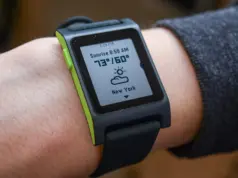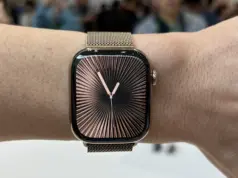In our fast-paced world, quality sleep often takes a backseat to demanding schedules and endless to-do lists. Yet, sleep is not a luxury; it is a fundamental pillar of our physical and mental health. Recognizing this crucial need, Fitbit has emerged as a leader in providing users with detailed insights into their sleep patterns, empowering them to make informed decisions and cultivate healthier sleep habits. While the anticipation for a single, groundbreaking “newest” feature might lead headlines, Fitbit’s strength lies in its comprehensive suite of sleep tracking tools that, when understood and utilized effectively, can indeed pave the way for better and longer sleep.
Fitbit devices, ranging from sleek wristbands to sophisticated smartwatches, automatically monitor your sleep when you wear them to bed. This seamless tracking eliminates the need for manual input and provides a wealth of data that can be accessed and analyzed through the Fitbit app. The foundation of Fitbit’s sleep analysis rests on its ability to detect different sleep stages: Light, Deep, and REM (Rapid Eye Movement) sleep, as well as periods of wakefulness.
Understanding these sleep stages is key to appreciating the quality of your rest. Light sleep, as the name suggests, is the initial phase as your body begins to unwind. It plays a role in mental and physical recovery. Deep sleep is crucial for physical restoration, muscle repair, and strengthening the immune system. Finally, REM sleep is the stage where most dreaming occurs and is vital for cognitive functions such as memory consolidation, learning, and mood regulation. Fitbit estimates these stages by analyzing your movement and heart rate patterns throughout the night. When your device detects a period of inactivity lasting about an hour, it assumes you have fallen asleep. Subsequent data, such as the duration of movements indicative of sleep behavior like tossing and turning, further refines the assessment of your sleep status. Notably, Fitbit devices with heart rate tracking (excluding older models like Charge HR and Surge) leverage beat-to-beat changes in your heart rate, known as heart rate variability (HRV), to accurately estimate transitions between these crucial sleep stages.
To simplify this complex data, Fitbit provides a personalized Sleep Score. This score, typically ranging from 0 to 100, offers a quick and easy way to gauge the overall quality of your previous night’s sleep. The Sleep Score is calculated based on various factors, including sleep duration, the time spent in different sleep stages, and periods of restlessness or wakefulness. A higher score generally indicates more restful and restorative sleep. According to Fitbit, most users achieve a sleep score between 72 and 83. Scores above 90 are considered excellent, while scores below 60 may suggest poor sleep quality. By tracking your Sleep Score over time, you can identify trends and understand how lifestyle factors, such as exercise, diet, and stress, impact your sleep.
Beyond simply tracking, Fitbit offers features designed to actively help you improve your sleep. One such feature is the ability to set a Sleep Schedule. By establishing consistent bedtime and wake-up times, you can help regulate your body’s natural sleep-wake cycle, also known as the circadian rhythm. Consistency is paramount for optimal sleep, and Fitbit’s Sleep Schedule feature allows you to set goals and receive reminders to stay on track. These friendly Bedtime Reminders can prompt you to start winding down for the night, creating a conducive environment for sleep.
For those who struggle with groggy mornings, Fitbit offers a Smart Wake feature. This intelligent alarm aims to wake you up during an optimal stage of sleep, ideally light sleep, within a 30-minute window before your set alarm time. The theory behind Smart Wake is that waking up during light sleep can leave you feeling more refreshed and less sluggish compared to being jolted awake from deep sleep. The gentle vibration on your wrist ensures a peaceful awakening, without disturbing anyone else nearby.
Delving deeper into sleep analysis, Fitbit provides Sleep Insights. These personalized insights connect your sleep patterns with other data tracked by your Fitbit device, such as your activity levels, heart rate, and even manually logged mood. For example, you might notice a correlation between days you engage in intense exercise and longer periods of deep sleep. Similarly, you might observe that stress or late-night meals negatively impact your Sleep Score. By highlighting these connections, Fitbit empowers you to understand the factors influencing your sleep and make positive changes to your daily routine.
For users seeking a more comprehensive understanding of their sleep habits, Fitbit offers a premium feature called Sleep Profile. Available on select devices for Premium subscribers, Sleep Profile provides a detailed monthly analysis of ten key sleep metrics, including sleep duration, regularity, and time spent in different stages. This feature goes a step further by assigning you a “sleep animal” that characterizes your long-term sleep behaviors, offering a fun and relatable way to understand your sleep style. To be eligible for a Sleep Profile, users need to have a Premium subscription, use a compatible Fitbit device, wear it during sleep for at least 14 days in the previous month, ensure sleep stages data is recorded, and keep their device synced.
Another valuable Premium feature is snore and noise detection, available on devices like Fitbit Sense and Versa 3. By utilizing the microphone on these devices, Fitbit can track noise levels during the night, including snoring from yourself or a partner. The next morning, you receive a report summarizing the findings. While Fitbit clarifies that this feature is not intended for medical diagnosis, it can provide valuable information about potential sleep disturbances that might warrant further investigation. It’s important to note that Fitbit only uses the microphone to register noise levels and does not save any audio recordings, ensuring user privacy.
To maximize the accuracy of Fitbit’s sleep tracking, it is recommended to wear the device snugly on your wrist, about two to three finger widths above your wrist bone. The band should feel secure but not too tight to ensure consistent heart rate readings. It’s also important to ensure your Fitbit device has sufficient battery charge before going to bed.
While there might not be a single, revolutionary “newest” feature to highlight, Fitbit’s robust and evolving suite of sleep tracking tools offers a comprehensive approach to understanding and improving your sleep. By automatically monitoring sleep stages, providing a simple Sleep Score, offering smart features like Bedtime Reminders and Smart Wake, and delivering personalized Sleep Insights and detailed Sleep Profiles (for Premium users), Fitbit empowers individuals to take control of their nightly rest. Embracing these features and actively engaging with the data provided can lead to better sleep habits, longer sleep duration, and ultimately, a more refreshed and healthier life.










